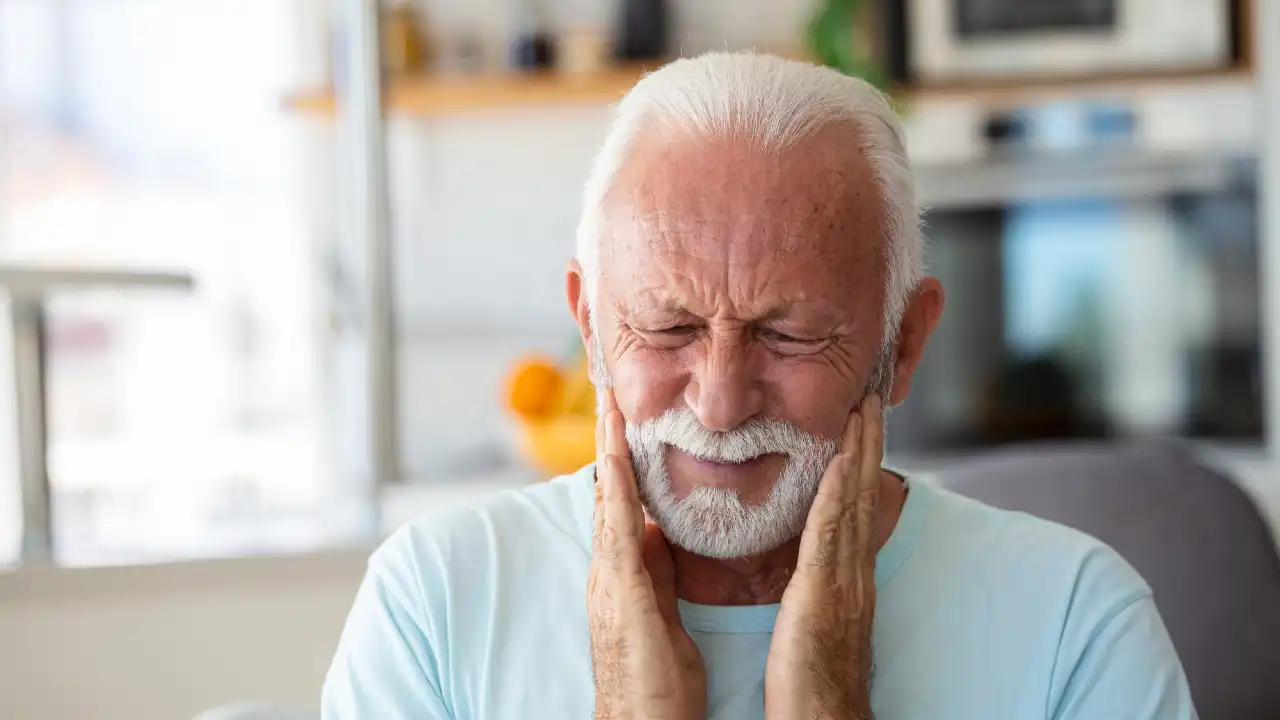HEALTH
How To Improve Your Dental Health In Your 50s

As you get older, your mouth ages and gets drier, increasing the chances of developing some of the most common dental health diseases. This is why many dentists recommend you take great care of your oral health in your younger years to keep them in optimal condition.
If you’re in your 50s, you’ll need to pay more attention to your mouth. This is because you’re at a higher risk of developing several dental health issues at this age. Most people in their 50s face tooth decay, loss, and darkening. Gum disease, bad breath, and dental-related illnesses like oral cancer are common for people aged 50 and over.
That said, there are several ways to improve your dental health in your 50s. Here are some tips:
- Consider Implants Or Dentures
It’s common to have one or more missing teeth at 50. If you don’t get implants or dentures, you may find the surrounding teeth naturally shifting to fill the left gap. Your jawbone might become weaker or degrade, making healthy teeth loose, and you may look older than you are.
If you have missing teeth, consult your dentist to prevent the above issues. They’ll explain the differences in dentures and implants and identify what suits you.
- Brush Daily
Daily brushing can improve your dental health. If you’ve done this for most of your life, don’t stop doing it as you age. It’ll help you prevent plaque and bacteria buildup, leading to tooth decay, gum disease, and bad breath.
However, in your 50s, your gums and teeth have undergone significant wear and tear. It’ll be best to be gentler. Consider switching to a soft-bristled toothbrush, and don’t apply too much pressure when cleaning your teeth. This will prevent further wear and tear.
If you experience joint pain or have arthritis, normal brushing may be challenging. Thus, buy an electric toothbrush. It’ll make things much easier and even help you clean the difficult-to-reach areas, protecting your oral health better.
Since you’re at a higher risk of oral health issues, brushing your teeth after every meal is best. This is contrary to brushing twice a day as you were used to, but it enhances your oral health better at age 50 and above.
- Keep Flossing
Brushing may not eliminate all food particles or plaque from your teeth and gumline. This is because your toothbrush can’t sufficiently reach deep between your teeth to remove all unwanted substances. Flossing can help you eliminate food debris and plaque more sufficiently, lowering the risk of tooth decay, cavities, and gum disease.
When flossing, you need to make some adjustments. You should apply minimum pressure to prevent excessive wear and tear of your gums. Since bacteria and plaque are likely to accumulate much quicker at this age, you’ll need to floss more frequently. So rather than doing it twice a day like you were used to, consider flossing after every meal. It may help first to floss and then brush. This way, you’ll loosen all food particles and plaque, then get rid of them with brushing rather than leaving them in the mouth.
If you have arthritis, experience joint pain, or find it challenging to perform simple tasks, a hand-held flosser is better. It’ll make things easier and allow you to apply minimum pressure on your gums. Your dentist can also recommend other suitable options.
- Go For Regular Check-ups
Regular dental check-ups are also essential in enhancing oral health at age 50 and beyond. This way, your dentist will identify and treat any potential problems early. They’ll thoroughly clean your teeth and gums, promoting good health. They may also recommend cosmetic procedures that could benefit you, like teeth whitening and dental bonding.
- Drink More Water
Your teeth normally go through demineralization—losing minerals—every day because of what you eat and drink. Saliva contains phosphate and calcium, which helps with remineralization—natural teeth repair process that replaces lost minerals to keep teeth strong and prevent tooth decay. Saliva also covers your teeth, protecting them against bacteria that may lead to cavities and gum disease.
At 50, you may struggle with dry mouth. This can result from hormonal changes or some medications you may be taking. Therefore, take lots of water to stimulate saliva production and eliminate food particles from your teeth and gums. Chewing sugar-free gum can also offer the same benefits.
Final Thoughts
At age 50 and beyond, you’ll be at a higher risk of developing dental issues like bad breath, gum disease, cavities, tooth loss, and discoloration. Dental health-related illnesses like oral cancer are also common at this stage. In this article, you’ve learned that taking care of your teeth and gums can significantly improve your dental health at age 50 and beyond. So, get dentures or implants in case of missing teeth, and ensure daily brushing and flossing. Drinking lots of water and going for regular oral check-ups can also help. These steps will help you maintain optimal oral health at age 50 and as you get older.
Kenneth is a proud native of sydney, born and raised there. However, he pursued his education abroad and studied in Australia. Kenneth has worked as a journalist for almost a decade, making valuable contributions to prominent publications such as Yahoo News and The Verge. Currently, he serves as a journalist for The Hear Up, where he focuses on covering climate and science news. You can reach Kenneth at [email protected].










